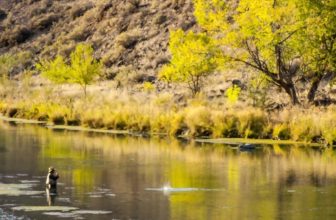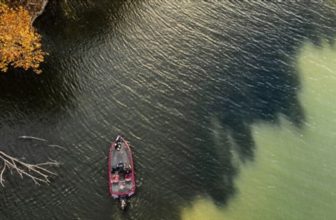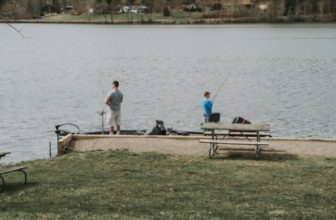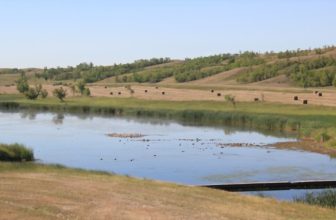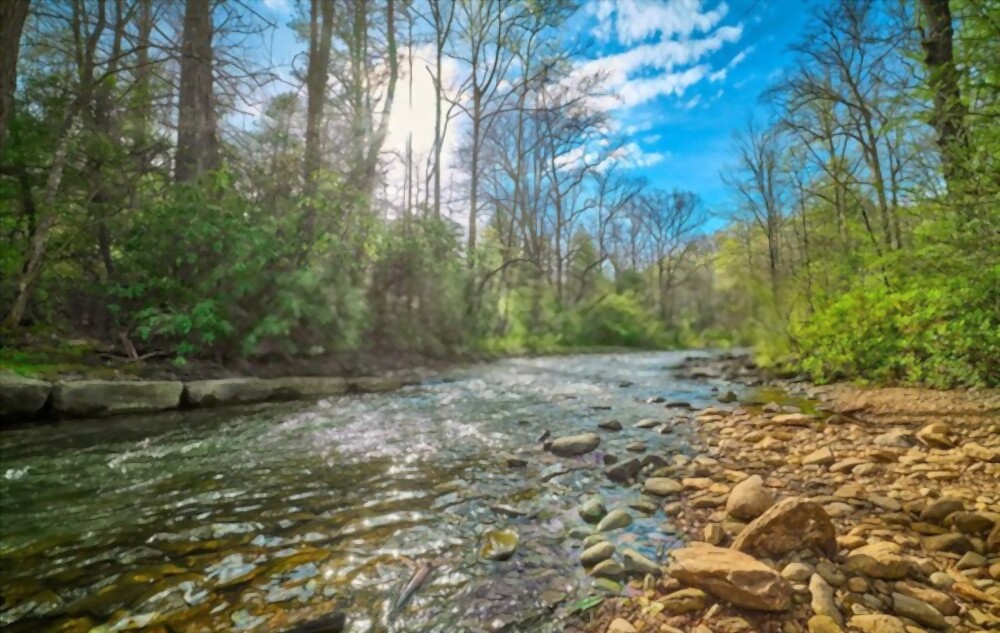
North Carolina Fishing License
Are you planning on going fishing in North Carolina? If so, it’s important to know that you’ll need a fishing license to legally fish in the state.
Not only is it required by law, but a fishing license also helps to support conservation efforts and maintain healthy fish populations in North Carolina’s waters.
There are several types of fishing licenses available in North Carolina, depending on your age, residency status, and the length of time you want to fish.
The costs of these licenses also vary, and it’s important to understand the rules and regulations that come with them.
In this article, we’ll go over everything you need to know about obtaining a North Carolina fishing license, including where to purchase one, the different types available, and the associated costs and regulations.
Understanding the Importance of a North Carolina Fishing License
If you’re planning to fish in North Carolina, it’s absolutely crucial that you have a valid NC fishing license. This is because the state has strict regulations governing fishing activities in its waters.
Without a license, you risk facing serious consequences such as hefty fines, loss of fishing privileges, and even legal penalties. By purchasing a North Carolina fishing license, you’re not only complying with state regulations but also contributing to the conservation of the state’s aquatic resources.
The fees collected from fishing licenses go towards funding various programs that support fisheries management, habitat restoration, and research. By obtaining a license, you’re helping to preserve and protect the state’s natural resources for future generations.
Moreover, having a valid fishing license gives you access to many of the state’s prime fishing spots. Many of the state’s public fishing areas require anglers to have a valid license.
With a license, you can explore many of the state’s scenic waterways and catch a variety of fish species, including trout, bass, crappie, and catfish. A North Carolina fishing license is not only a requirement but also an essential tool for enjoying the state’s vast fishing opportunities.
Types of Fishing Licenses Available in North Carolina
You have a variety of options when it comes to the type of permit you can obtain for your angling adventures in this great state. North Carolina offers different types of fishing licenses depending on your age, residency status, and the duration of your fishing trip. The following table summarizes the types of fishing licenses available in North Carolina and their corresponding fees:
| Type of License | Resident Fee | Non-Resident Fee |
|---|---|---|
| Annual | $25 | $45 |
| 10-Day | $15 | $23 |
| 3-Day | $10 | $13 |
| 1-Day | $5 | $10 |
| Lifetime | $250 | N/A |
If you are a North Carolina resident, you may opt for the annual or lifetime fishing license. The annual license is valid for 365 days from the date of purchase, while the lifetime license is valid for the rest of your life. The lifetime license is a great investment if you plan to fish in North Carolina for many years to come. It is also a great gift for a family member or friend who loves fishing.
If you are a non-resident, you may choose from the 10-day, 3-day, or 1-day fishing license. These licenses are ideal for tourists who plan to fish for a short period while in North Carolina. Keep in mind that the fees for non-residents are higher than those for residents. Additionally, if you plan to fish in both fresh and saltwater, you will need to purchase a separate license for each type of water. Regardless of the type of license you choose, make sure to carry it with you at all times while fishing in North Carolina.
Costs of Fishing Licenses in North Carolina
To get a better idea of the fees and expenses for your angling trip in NC, let’s take a look at the costs of the different types of licenses available. Here are the costs of North Carolina fishing licenses:
- Annual Comprehensive Inland Fishing License – $25
- Annual Comprehensive Coastal Fishing License – $16
- Annual Unified Inland/Coastal Fishing License – $40
- Lifetime Comprehensive Fishing License – $500
As you can see, the costs vary depending on the type of license you need. If you plan on fishing in both inland and coastal waters, it may be more cost-effective to get the unified license. However, if you only plan on fishing in one area, it may be more beneficial to get the comprehensive license specific to that area.
It’s important to note that these costs are subject to change and there may be additional fees for certain types of fishing, such as trout fishing. Be sure to check with the North Carolina Wildlife Resources Commission for the most up-to-date information on license costs and requirements.
With the proper license, you can enjoy a successful and legal fishing trip in North Carolina’s beautiful waters.
Where to Purchase a North Carolina Fishing License
Don’t miss out on the opportunity to explore the abundant and diverse aquatic life in NC’s waters – make sure to buy your fishing license from an authorized vendor. In North Carolina, there are various options for purchasing your fishing license. You can buy it online, at a Wildlife Service Agent, or at a Wildlife Service office.
If you prefer to buy your license online, you can visit the North Carolina Wildlife Resources Commission website and purchase your license there. This option is convenient and fast, as you can print your license immediately after purchasing it. Additionally, you can also purchase other permits, such as trout fishing stamps and game lands access permits, online.
If you prefer to buy your license in person, you can visit one of the many authorized Wildlife Service Agents throughout North Carolina. These agents are usually located in bait and tackle shops, sporting goods stores, and other outdoor recreation retailers. Alternatively, you can also visit one of the Wildlife Service offices located throughout the state. These offices offer additional services such as wildlife management and conservation information, as well as hunting and fishing regulations. Whatever your preference may be, make sure to purchase your fishing license before heading out to the water to ensure that you are abiding by the state’s regulations and laws.
Rules and Regulations for North Carolina Anglers
It’s important to be aware of the rules and regulations for anglers in NC, so that you can enjoy your fishing experience while also protecting the aquatic ecosystem. For starters, you must have a valid fishing license with you at all times when fishing in the state.
Additionally, there are various size and creel limits that you must adhere to, depending on the species of fish you’re targeting.
In North Carolina, it’s also important to know the specific regulations for the body of water you’re fishing in. Some lakes, rivers, and streams have their own set of rules and restrictions, such as no-wake zones or catch-and-release only areas. Make sure to research the specific body of water you plan to fish in beforehand to avoid breaking any regulations.
Finally, it’s crucial to practice responsible fishing techniques to protect the aquatic ecosystem. This means properly disposing of any trash or fishing gear, not overfishing or taking more than your limit, and releasing any undersized or unwanted fish back into the water.
By following these rules and regulations, you can enjoy a successful and sustainable fishing experience in North Carolina.
Frequently Asked Questions
What are the penalties for fishing without a license in North Carolina?
Fishing without a license in North Carolina can result in fines, court costs, and even jail time, depending on the severity of the offense. It’s important to obtain a license before casting your line.
Can out-of-state residents purchase a North Carolina fishing license?
Yes, as an out-of-state resident, you can purchase a fishing license in North Carolina. However, make sure to check the specific regulations and fees for non-resident licenses before buying.
Are there any discounts available for senior citizens or disabled anglers?
Yes, senior citizens and disabled anglers can get discounts on fishing licenses in some states. It’s best to check with the specific state’s wildlife department to see what discounts are available.
What types of fish require special permits or tags in North Carolina?
If you’re planning to fish in North Carolina, keep in mind that certain types of fish require special permits or tags. These include striped bass, red drum, and some types of trout. Be sure to check the regulations before you head out.
Is catch-and-release fishing allowed in all North Carolina waters?
Yes, catch-and-release fishing is allowed in most North Carolina waters, but there are some exceptions. Make sure to check the specific regulations for the body of water you plan to fish in before heading out.
Conclusion
Congratulations on taking the first step towards becoming a responsible angler in North Carolina! By obtaining a fishing license, you’re not only complying with state regulations but also contributing to the conservation and management of our valuable fish populations.
Remember, there are different types of licenses available depending on your age, residency status, and fishing preferences. Make sure to purchase the appropriate license before casting your line.
And always abide by the rules and regulations set forth by the North Carolina Wildlife Resources Commission to ensure a safe and enjoyable fishing experience for yourself and others.



